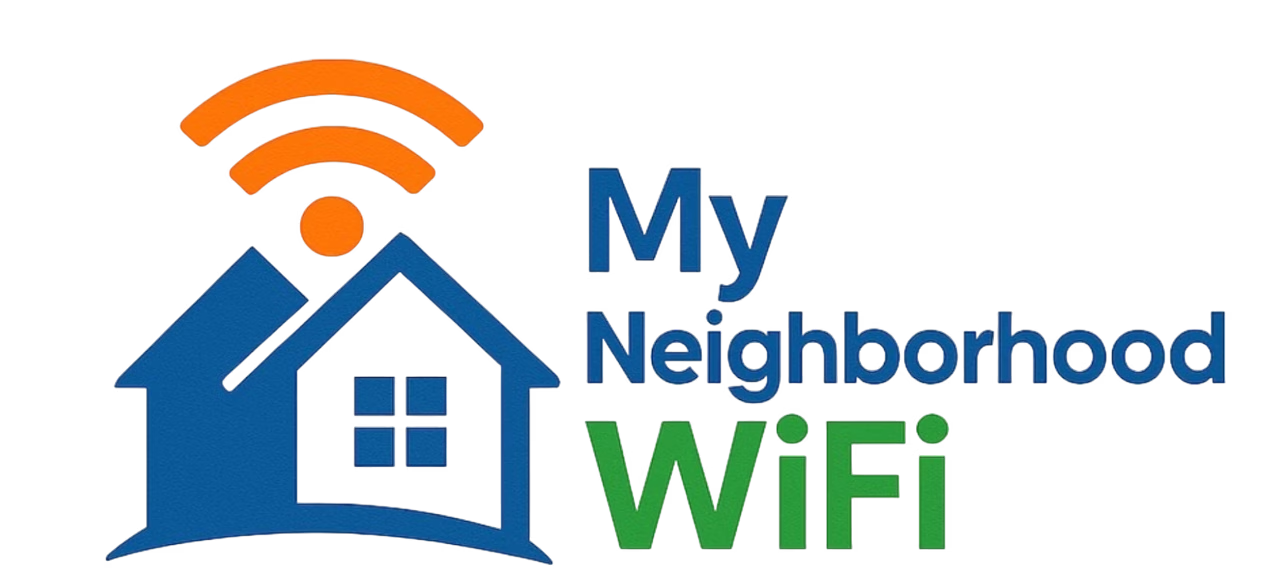
Sharing WiFi with neighbors can sound like a convenient and cost-saving idea, but doing it right requires more than just handing out your password. If not managed properly, you could face slower speeds, security risks, or even legal trouble. In this guide, we’ll explore smart ways to share internet with neighbors legally and safely, while keeping your data and devices protected.
Why Share WiFi with Neighbors?
In many neighborhoods, internet access is a shared necessity, almost like electricity or water. Sharing WiFi can help in several ways:
- Saving money: Splitting a bill with one or more neighbors can reduce monthly costs.
- Supporting community: WiFi sharing can be a friendly gesture that fosters neighborhood connections.
- Helping during emergencies: If one home loses connectivity, shared WiFi can serve as a backup.
However, before you set it up, it’s important to understand the boundaries of what’s legal, what’s safe, and why planning ahead matters.
Is It Legal to Share Internet with Neighbors?
This is one of the first questions you should ask. While many people casually share WiFi, it’s not always permitted. Most internet service provider (ISP) agreements restrict sharing connections outside your own household. Violating those terms could lead to reduced speeds or even cancellation of your service.
That said, there are a few safe approaches:
- Check your agreement: Always read your user agreement to confirm whether sharing is allowed.
- Ask directly: Contact your ISP and inquire whether a multi-unit or shared plan exists for neighbors in close proximity.
- Use community-oriented plans: Some ISPs have special programs designed for apartments or neighborhoods, which formally allow shared access.
Risks of Sharing WiFi Without Preparation
Sharing WiFi isn’t without challenges. Here are the top risks you should be aware of:
- Security breaches: Giving neighbors unrestricted access could expose your devices and files.
- Bandwidth strain: Streaming, gaming, or large downloads from multiple users can slow your connection.
- Privacy concerns: Without network segregation, your browsing activity could be visible to others.
- Legal implications: If someone else uses your network for illegal activity, it could be traced back to you.
Smart and Safe Ways to Share WiFi
Create a Separate Guest Network
Modern routers allow you to set up a guest WiFi network. Think of it as a “public area” of your internet access where your neighbors can connect without accessing your personal devices. You can restrict speeds, limit data usage, and even set time schedules for their use.
Use Bandwidth Control Features
Many routers include Quality of Service (QoS) settings. This lets you prioritize your own household’s traffic first—ensuring your video calls, streaming, and work applications don’t lag even if neighbors are downloading large files.
Strengthen Security Settings
Always secure a shared WiFi network with a strong password and proper encryption. WPA3 (or WPA2 if WPA3 isn’t available) is the most secure option for home networks.
Consider Wired Options
If your neighbor lives next door or just upstairs, running an Ethernet cable directly between homes is often more stable than WiFi. Wired connections also allow you to create clearly separated sub-networks.
Use Mesh Systems
Mesh WiFi systems can extend signals across property boundaries, but each home can still be given its own node for better management. Keep in mind, however, that mesh systems can halve bandwidth with each wireless hop, so a wired backhaul between nodes is ideal.
Set Clear Agreements with Neighbors
Just like splitting household bills in a shared apartment, it’s smart to have an agreement:
- Who pays the bill and how is it divided?
- What happens if service is interrupted?
- Are there restrictions on certain activities (large downloads, gaming, etc.)?
Practical Tips for Managing a Shared Network
- Regularly update router firmware to prevent vulnerabilities.
- Use monitoring tools: Apps like Fing (available on mobile) can help you track who is connected.
- Change passwords when needed: Especially if neighbors move out or devices are replaced.
- Keep your main network private: Only allow friends or family members on the main network; everyone else should use guest access.
How to Avoid Conflicts When Sharing WiFi
Technology aside, the social aspect of sharing matters too:
- Communicate openly about internet usage habits.
- Set expectations early—clarify bandwidth limits or device caps.
- Revisit the arrangement if speeds fall or costs become unfairly distributed.
Frequently Asked Questions
Can my neighbor see my browsing activity if we share WiFi?
Without protection, yes. But if you use separate guest networks or virtual private networks (VPNs), your data will remain private. Browsers that enforce encryption (HTTPS) also help secure traffic.
Will sharing WiFi slow my internet?
Yes, if too many people use it at once. This is especially problematic with high-bandwidth activities like streaming or gaming. Using QoS settings can help.
What’s the safest way to do it?
The safest option is setting up a guest network with encryption and password protection, combined with clear agreements about usage.
Community Examples of WiFi Sharing
People often take to Reddit discussions to share their experiences of splitting WiFi with neighbors. Some success stories mention cost-sharing arrangements that ran smoothly thanks to guest networks and clear guidelines. Others highlight issues like neighbors inviting friends to use the network, causing bandwidth overload.
Another practical example can be found on Quora, where users discuss setting up routers with parental controls and VLANs (virtual local area networks) to safely separate connections between households.
Tools That Make Sharing Easier
Several tech solutions can make this process smoother:
- Routers with advanced controls: These allow you to set data caps or control access per device.
- Network monitoring apps: Free tools on YouTube tutorials show how to identify bandwidth hogs.
- Range extenders or additional access points: Extend coverage for multi-household sharing.
Ethical Considerations in Sharing WiFi
Beyond legality and technology, there’s an ethical side. Sharing WiFi should be fair and transparent. If you’re the one managing the bill and router, you have more responsibility—but also more control. Balancing fairness with responsibility is key.
Wrapping It All Together
Sharing internet with neighbors can be done legally and safely if approached with planning and caution. By using guest networks, proper security, agreements, and the right hardware setup, neighbors can save money, stay connected, and support each other without risking privacy or bandwidth overload. Whether you’re looking for a backup plan in case of outages or simply want to reduce costs, following these smart strategies will make sure your shared WiFi arrangement is both friendly and effective.
“Most inquiries are answered within the same day”
Written by admin
Content writer and tech enthusiast sharing insights on internet connectivity.



